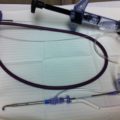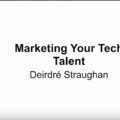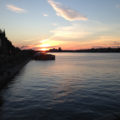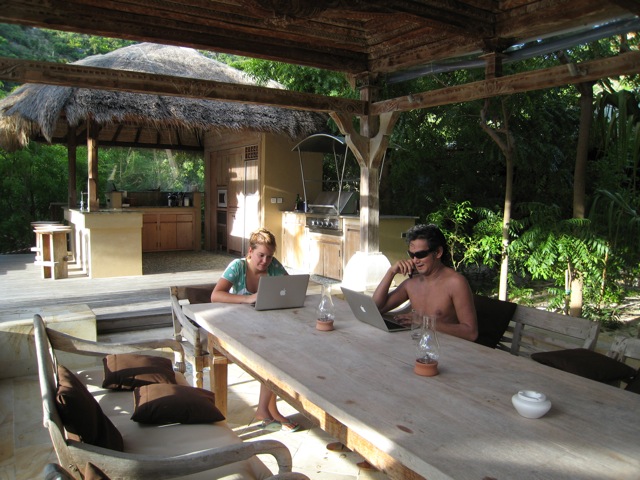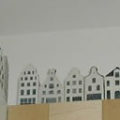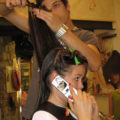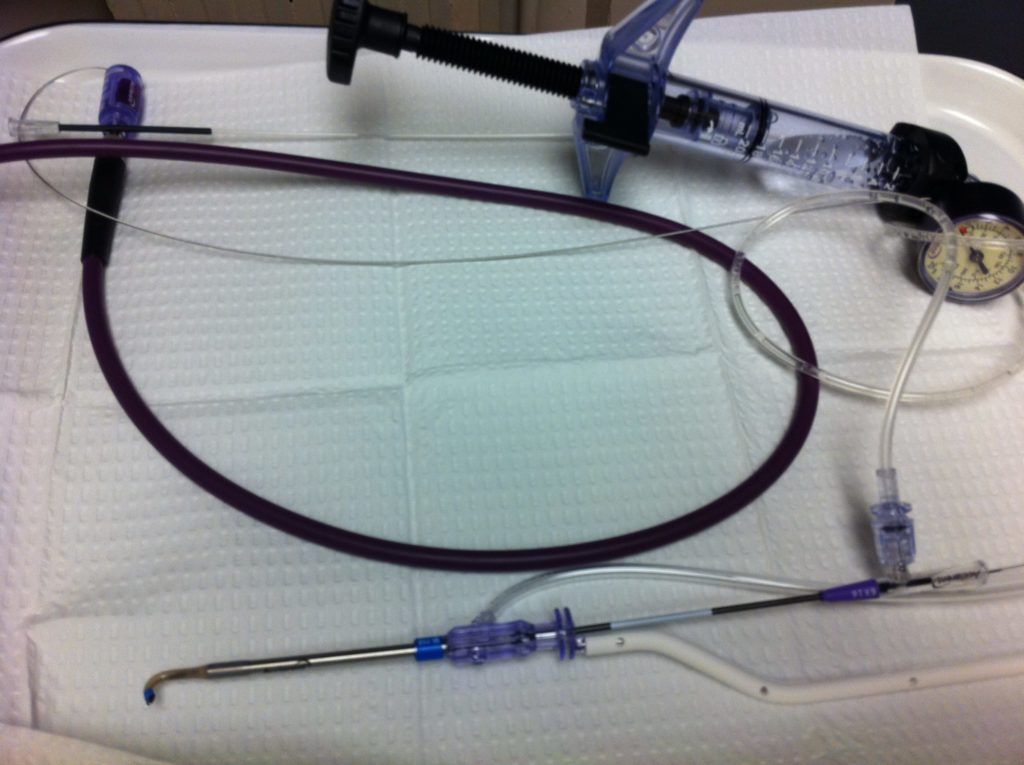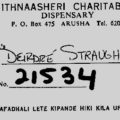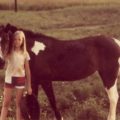I had my first mammogram about ten years ago, around age 35. I was surprised when the gynecologist I was seeing suggested it; I thought routine mammogram screening didn’t start til age 40 or 45. He said: Lei ha un seno difficile – “You have difficult breasts.” By which he meant that they were naturally lumpy (fibrocystic), making it hard to tell by palpation whether there was anything suspicious in there or not.
So I went for my first mammogram at one of Milan’s big hospitals. I stood a torso nudo (stripped to the waist), staring round-eyed at the machine. I’d been told mammograms were (at best) uncomfortable, and I didn’t know what to expect.
The technician, seeing my expression, asked: E’ la prima volta? (“Is it your first time?”). I nodded. She kept up a steady stream of chatter, to which I replied in monosyllables until she finally burst out: “I’m trying to distract you!”
I appreciated the effort, but…
So, for those who have yet to experience it (or never will), here’s how a mammogram goes:
You stand in front of the machine and the technician raises the platform (about a foot square) to a height just slightly uncomfortable to fit under your breast. You arrange your arm around the corner of the platform, and hold onto a handle at the back of the machine – that keeps your arm stretched out of the way. If the corner digs into your armpit, you know you’re doing it right.
The technician lifts the breast onto the platform and pulls it out to an extent you would not have imagined your breast could stretch. Then she lowers a flat, clear plastic cover that squashes it down to a minimum possible thickness (in my case, about two centimeters). This is indeed uncomfortable, verging on painful, depending on how sensitive your breasts are (which, in my case, depends partly on the time of month – never schedule a mammogram just before your period is due).
The technician retreats behind a safety screen and throws the switch; there’s an x-ray buzz, then the plastic thing squashing your breast lifts by itself and you can breathe again.
Repeat for the other breast.
Then it’s time to do the laterals. The platform is tilted to a 45-degree angle and your breast squashed sideways onto it, again held flat by the plastic cover. Lather, rinse, repeat. Ow, ow, ow.
I was advised to do this every two years until further notice. The second or third time I had a mammogram, the clinic insisted on also doing a sonogram (ecografia), because the internal geography of my breasts is so difficult that a mammogram alone isn’t enough to spot potential trouble.
This revealed large cysts – very common, nothing to worry about, they show up as huge black bubbles on the sonogram. They are benign and totally unrelated with cancer.
During a trip to California in 1999 or so, I was going to sleep in my hotel one night when I suddenly noticed something sticking out of my breast – the inside of my upper arm brushed against it. It was about the size of a walnut, and seemed to have come out of nowhere. I lay awake much of the night, until it was late enough that I could call my doctor back in Milan.
“It’s probably one of your cysts that has suddenly enlarged,” she said soothingly (possible cause: I had just gone off the pill after trying it for 2-3 months and finding myself constantly depressed).
I was flying back to Milan within days, so the doctor told me to come immediately to her office when I got home, and she would give me a n emergency form entitling me to see a specialist within 48 hours. I duly did so, and had 100 cc’s of a nasty black fluid drained out of one of the cysts (through a large needle). Nothing to worry about.
You can’t keep a cyst down for long, however, and having these large sacs full of fluid in my breasts just makes me front-heavier. Within a few years I was trying to convince another doctor to drain them, but she refused, saying that would cause them to fill with hard stuff instead. The only solution short of surgery was to find better bras.
The cysts and I have been relatively at peace for a while. Until a couple of weeks ago, when my breasts began to ache, apparently with the strain of bearing increasingly large amounts of fluid. I wasn’t worried about this, but wondered if something could be done. Went to the family doctor on Wednesday. She gave me a Fascia A (A Category – urgent) prescription for a mammogram, which meant that they slipped me into the schedule the next morning at the hospital’s mammogram center.
The mammogram this time was, unsurprisingly, very painful – my breasts were already sore, after all. I whimpered, causing the technician to ask: “Does it really hurt that much?” I tried to concentrate on the many colorful posters hung on the walls around the room, presumably to distract suffering patients.
While waiting in the dressing cubicle, I overheard the doctor saying to another woman (an older one, I think): “There’s just something here under the nipple… can you come in Monday at 11 for a prelievo?” (“withdrawal” – in most medical contexts this refers to a blood sample, but in this case I assume she meant tissue). I wondered idly what medical adventure this woman might be embarking on, and thought of my mother-in-law, who had breast cancer six years ago.
When my x-rays were developed, the doctor – a reassuring lady with masses of curly black hair – called me in for my sonogram. She squirted a lot of chilly gel all over my breasts and slid the instrument around in it while staring intently at the TV screen.
“How long does it take to learn to understand what you’re seeing there?” I asked.
“Oh, you never stop learning!” she said cheerfully.
It was greek to me, but I could make out the cysts: big black gaps in the picture. They swam in and out of sight as the doctor moved the probe.
Then she went back to looking at the mammograms.
“I want you to do one more mammogram of this right side. The picture on this one is superimposed, it’s not clear enough.”
I wiped all the gel off with wads of the paper sheet, and returned to the x-ray room. (Did I mention that it was chilly in all these rooms and I had been topless for nearly an hour?)
This time I was in for special torture. An extra piece was added to the x-ray platform to raise it up, then instead of a big square piece of plastic, a small round one was squashed down on my breast (which hurt even more) and the technician drew a curve around it on my breast with a blue marker pen, I suppose to define the precise point of squashing.
Then I sat in the cubicle some more until the doctor called me back in.
“There’s an area here that’s…” she trailed off without ever finding the word. “It’s probably just the mastopatia [benign fibrocystic “pathology”], but… can you come in Tuesday for a prelievo?”
next

